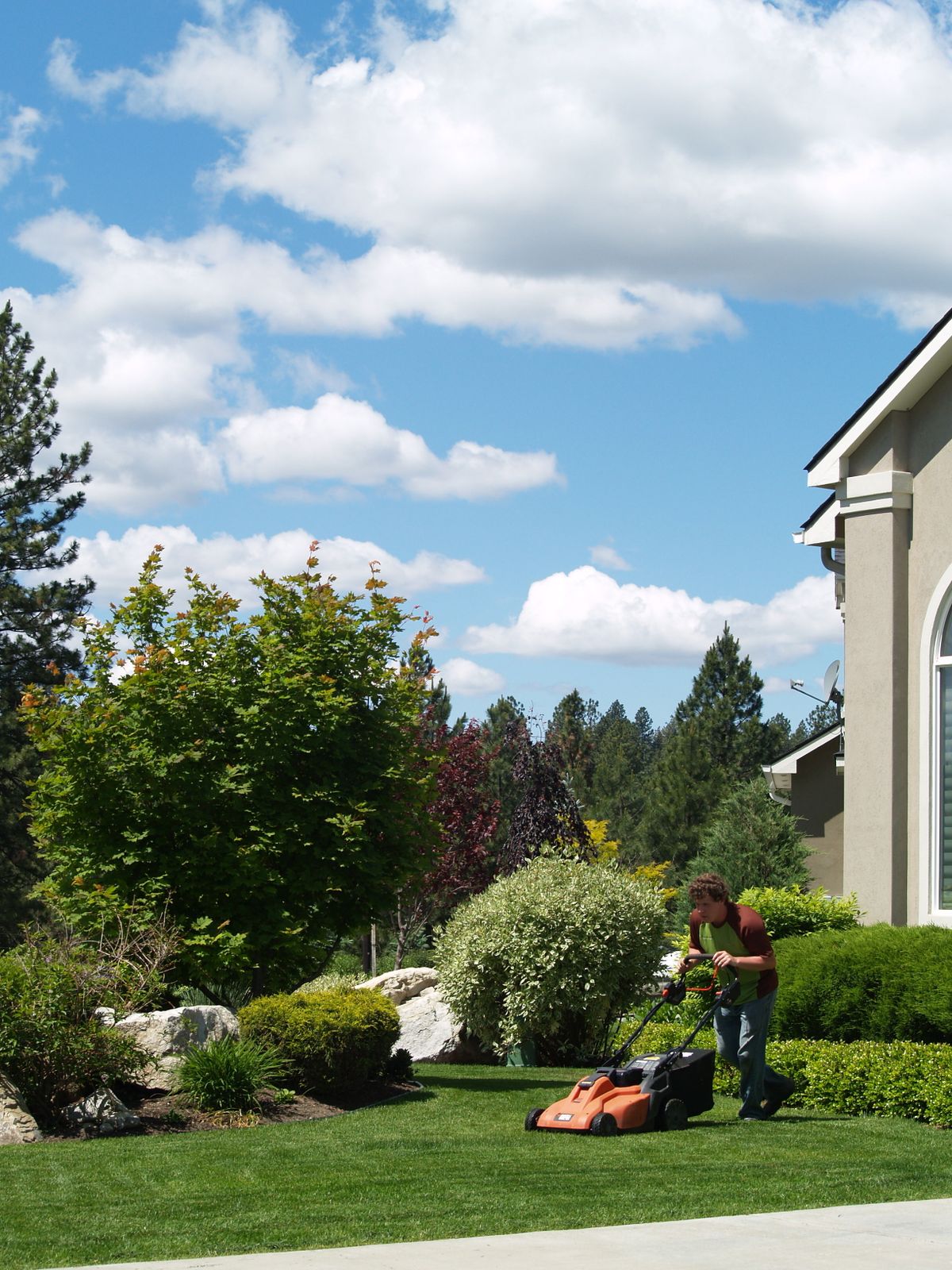Living lawns
Local landscaping franchise pushes for cleaner, healthier process

It was a beautiful morning and Tavis Schmidt was enjoying backyard gardening while his 6-year-old son played nearby. In a puff of blue smoke, pretty much everyone in the neighborhood fired up noisy mowers and trimmers.
All of a sudden his son wasn’t feeling so well.
“He was fine, then the smoke from our neighbors’ mowers wafted into our yard, and pretty soon he came over and said ‘Daddy… I think I’m going to throw up,’” said Schmidt.
He also began feeling queasy, so they both went inside and soon felt better. However, it troubled Schmidt that they could still look at their nice yard, but weren’t able to enjoy it.
“I thought, ‘This is really too bad…I’m trying to grow vegetables but all this smoke is defeating that, and now my son can’t even play outside without being affected,” remembers Schmidt.
So he decided to do something about it—maybe buy an electric lawn mower and lend it to neighbors. Then he found an ad for franchise opportunities for Clean Air Lawn Care, the nation’s leading full-service sustainable lawn care company.
“I wasn’t really feeling the love at my current job—this all happened at the perfect time,” he said.
In spring 2009, Schmidt went part-time as assistant city planner for Spokane Valley, and bought the local Clean Air Lawn Care franchise.
With the goal to create and maintain beautiful lawns using “earth-friendly and family-healthy methods,” Clean Air Lawn Care’s treatment programs integrate organic fertilizers, organic pre-emergent weed control and micro-organism soil builders.
In contrast, synthetic fertilizers and pesticides used by some lawn care companies can cause problems.
In Washington State, phosphorus in lawn care products can cause negative effects on aquatic life. Excess phosphorus in fertilizers doesn’t always remain on lawns and bind with the soil, instead, it runs off from rain or excessive watering, and finds its way into local waterways, where it can contribute to the growth of algae blooms.
In addition to the organic products Schmidt’s company uses, Clean Air Lawn Care uses two types of mowers: smaller solar-battery powered lawn mowers, charged by panels atop Schmidt’s trucks, and larger diesel mowers powered by biofuel from Inland Empire Oil Seeds in Odessa, Wash. Wind energy powers Schmidt’s shop.
Not only does his equipment have an extremely low-to-neutral impact with regards to emissions, but it’s exceptionally quiet. The Department of Interior’s Green Seal report estimates electric lawn mowers cut noise emissions by 50 to 75 percent—great for neighbors, workplaces and napping kids.
To ensure the entire operation is carbon-neutral, the company purchases wind energy and carbon offsets from Carbonfund.org to make up for fuel burned and un-renewable energy used.
The company tries to “localize” services with regards to local environmental factors and unique conditions specific to every lawn, testing soil and advising on irrigation needs.
Schmidt and other Clean Air Lawn Care franchisees compost all grass clippings and organic matter, either on site or at a local recycling center. Lawns are mowed at a height that maximizes water conservation and nutrient uptake. He said some lawn care services may mow at a height that burns grass, wastes water, and promotes weed growth.
In 2010, the company, nationwide, reduced 5,161 pounds of air pollution (the equivalent of 150,466 vehicle miles driven) reduced over 110,341 pounds of air pollution (the equivalent of 3,216,939 vehicles miles driven,) and 42,174 pounds of chemical fertilizer.
Schmidt’s parents introduced the idea of interacting gently with the earth, and the concept always interested him.
Growing up in the Mead area, Schmidt’s family always gardened and composted, After college at Northern Arizona University, double-majoring in physical geography and public planning, Schmidt moved to New Mexico where he apprenticed at an organic farm and became involved with sustainable building practices, including straw-bale building.
So far business has been good. Last summer, Schmidt’s residential jobs tripled to 50-plus including commercial clients like Greenstone Homes, Carnahan Crest, Big Trout Lodge in Liberty Lake and Rockwood Management.
“I’ve gotten a lot of good response,” says Schmidt. “Not really anyone attempts to do what I do [in the area,]…there are different levels available through a few companies but it’s like, if you make a stew with organic broth, but the broth is the only thing that’s actually organic, can your whole stew be considered organic?”
For more info visit www.cleanairlawncarespokane.com.